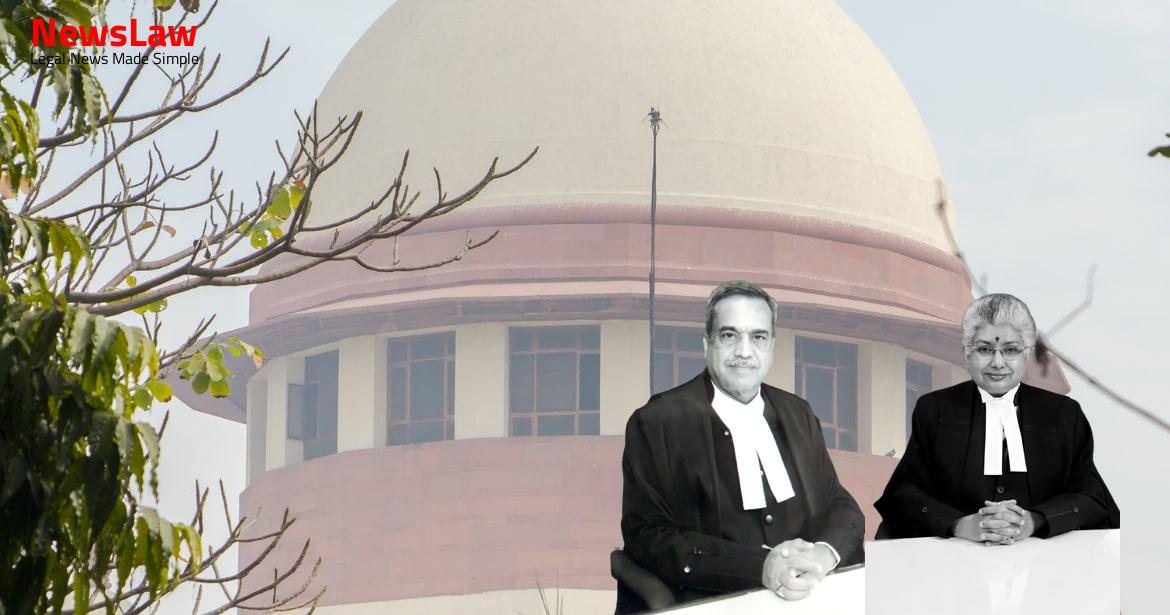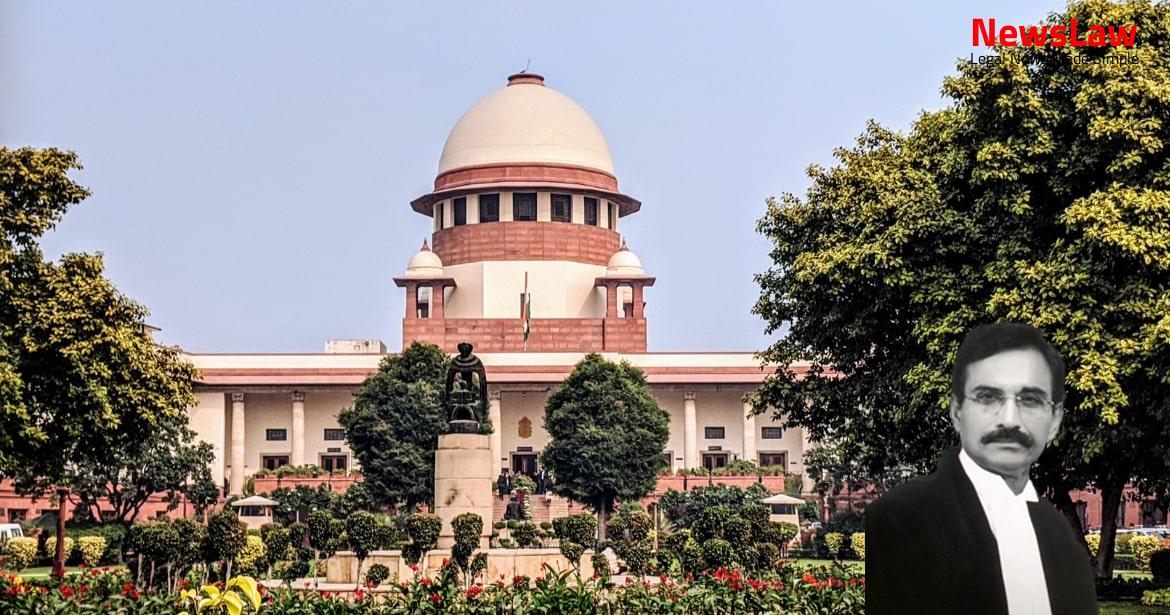In a significant ruling by the Supreme Court of India, the exclusion of VAT from taxable turnover under the GVAT Act has been upheld. The case involved a dispute between the State of Gujarat and the tax authorities regarding the calculation of taxable turnover. The Appellant challenged the judgments of the High Court and the Tribunal, arguing for the inclusion of VAT in the purchase price. However, the High Court and Tribunal held otherwise, stating that only specific taxes mentioned in Section 2(18) should be considered. This decision has far-reaching implications for tax law interpretation.
Arguments
- The Appellant, the State of Gujarat, challenged the judgments of the High Court and the Tribunal.
- They argued that Value Added Tax and value of purchases without tax credit claimed should be included in the taxable turnover of purchases under the GVAT Act.
- The High Court and Tribunal had held otherwise, stating that only specific taxes mentioned in Section 2(18) should be included in the purchase price.
- The Appellant argued that the legislative intent was misinterpreted, and VAT should be included in the purchase price for calculating taxable turnover.
- The High Court framed two substantial questions of law regarding the exclusion of VAT from taxable turnover under Section 11(3)(b) of the Act.
- The dispute revolved around the inclusion of VAT in the purchase price for calculating taxable turnover, with the Appellant advocating for its inclusion while the Respondent disagreed.
- The learned counsel contends that the scope of Section (11)(3)(b) of the GVAT Act should not be expanded beyond what is provided for in the Act.
- The taxable turnover of purchases cannot be computed beyond the provisions of the GVAT Act.
- This argument is made in relation to Civil Appeal No.7874 of 2024.
Also Read: Judgment on Interim Stay of Bail Orders: The Case of Liberty vs. Judicial Discretion
Analysis
- Section 2(18) of the GVAT Act defines ‘purchase price’.
- Section 2(32) defines ‘turnover of purchases’.
- Section 11 of the GVAT Act deals with entitlement to tax credit.
- The purchase price does not include purchases on which no value-added tax was claimed or granted.
- The taxable turnover of purchases should be calculated after deducting the mentioned components.
- The calculation of taxable turnover and reduction value of certain purchases was rightly excluded from total turnover while computing tax liability.
- Article 265 of the Constitution prohibits extraction of tax without authority of law.
- Charging section to be construed strictly.
- The legislature’s omission of certain categories from tax/duties must be respected.
- The taxpayer should not be taxed without clear words in the statute.
- The Gujarat Value Added Tax Tribunal partially allowed the appeal by excluding specific purchases from taxable turnover for reducing tax credit.
- Tax statutes should be interpreted strictly as per legislative intent.
- The intention of the legislature was to exclude certain purchases from taxation.
- Before taxing a person, they must fall within the charging section’s clear words.
- Definition of turnover of purchases under sub-Section (32) of Section 2 of the GVAT Act.
- Evaluation of tax credit under Section 11 of the Act.
- Explanation of purchase price as per sub-Section (18) of Section 2 of the GVAT Act.
- Clarification on the determinative factor for calculating turnover of purchases based on purchase price.
- Emphasis on reading the statute as it is, giving effect to clear and unambiguous words.
- Observation that the purchase price is restrictive within the domain of Section 2(18) of the Act.
- In the case of Commissioner of Wealth Tax, Gujarat-III, Ahmedabad v. Ellis Bridge Gymkhana, the court held that the rule of construction of a charging section is that entities cannot be brought back within the ambit of the charging section by implication or by ascribing an extended meaning.
- In the case of P. Kasilingam and Others v. P.S.G. College of Technology and Others, the court observed that the use of the word ‘means’ in a definition is a hard-and-fast definition where no other meaning can be assigned.
- The word ‘includes’ when used enlarges the meaning of the expression defined to comprehend not only its natural import but also those things declared to include.
- The words ‘means and includes’ provide an exhaustive explanation of the meaning to be attached for the purposes of the Act.
- The definition of ‘college’ under Rule 2(b) is intended to be exhaustive, covering only specified educational institutions as listed in the rule.
- No one can be taxed by implication.
Also Read: Zaveri & Co. Pvt. Ltd. vs. ACIL: Legal Precedent on Guarantor Liability
Decision
- Transfer Cases directed to be heard along with present appeals are allowed based on the judgment in the Appeals.
- The order passed by the Tribunal upheld by the High Court is in accordance with the law.
- Civil Appeal No.7874 of 2024, ETC. is called for no interference.
- The appeals are dismissed.
Also Read: Judgement Summary: Dissolution of Marriage – Supreme Court of India
Case Title: THE STATE OF GUJARAT Vs. M/S AMBUJA CEMENT LTD (2024 INSC 572)
Case Number: C.A. No.-007874-007874 – 2024



